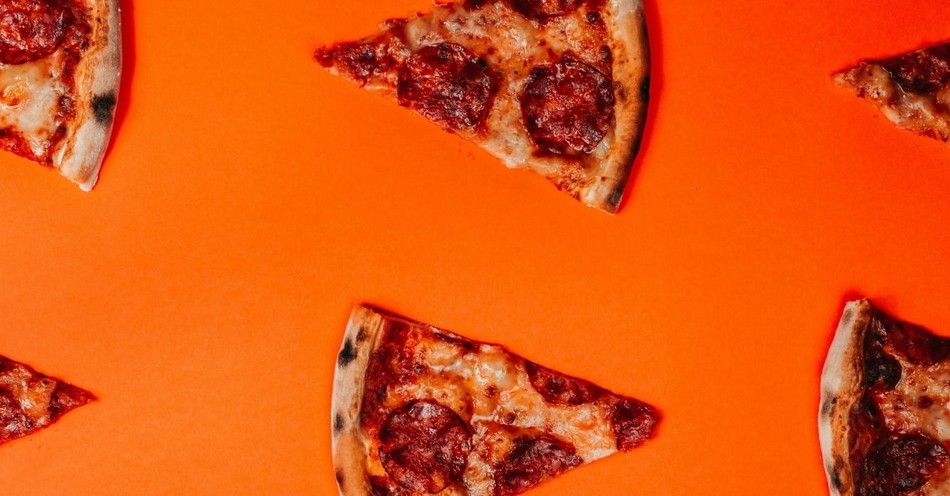A new CDC report finds that ultra-processed foods comprise nearly 60% of Americans’ daily calories. Ultra-processed foods are defined as those that are high in calories, low in fiber, contain almost no whole foods, and tend to be high in salt, sweeteners, and unhealthy fats. Some of this category's most commonly consumed foods include sandwiches, burgers, bakery items, savory snacks (chips, crackers, etc.), sweetened drinks, pizza, bread, and tortillas. For most of us, this list sounds a lot like our household staples, and if we are honest, our kids' primary foods, but we are learning that these easy foods create real problems for ourselves and our children.
Research has proven that ultra-processed food leads to a higher risk of cardiovascular disease. Additionally, the BMJ Journal discovered that the more processed food we consume, the more likely we are to experience over 32 damaging health outcomes, which include a higher risk of cancer, heart and lung conditions, GI issues, obesity, type 2 diabetes, sleep problems, mental health disorders, and early death. We also know that additives such as artificial dyes and sweeteners commonly placed in ultra-processed foods increase the risk of neurobehavioral outcomes in children. These foods are also designed to be addictive, which adds another layer of complexity to this widespread problem.
The problem we face as a nation is staggering, and the impact far-reaching. It’s estimated that around 40% of adults in the United States will receive a cancer diagnosis in their lifetime. About 12% of the population has type 2 Diabetes. Heart Disease is responsible for 1 in 5 deaths in the US, and 1 in 5 adults experience mental illness each year. These statistics are merely a small glimpse into how sick our nation is. We all know this to be true personally, as we are managing autoimmune conditions, our personal diagnoses, struggling with the behaviors of our children, and so much more. This crisis impacts every single one of us.
How can we recover a vision of food that nourishes both body and soul in a world built for speed and profit?
Remember That Our Bodies Are a Temple
Some of us are tempted to brush off this crisis as we see our bodies as disposable and food outside the realm of morality, but neither of those notions is biblical. God gave us a body, and he goes so far as to call it a temple, which paints a picture of our bodies as a house of worship, that is holy, sacred, and valuable (1 Corinthians 6:19). We are to nurture, care for, and steward the bodies we have been given.
Food most certainly has moral consequences, which date back to the earliest formation of the Jewish tradition. God gave his people meticulous instructions on which foods were clean and which were unclean. He cared deeply about how his chosen people were nourished, guiding them towards practices that would protect and preserve their health.
We live under the new covenant of grace, so we don’t have to only eat a Kosher diet, but the idea that God cares about how we are nourished remains true. God cares about the well-being of all humanity and is grieved that so much suffering has been ushered into our world due to unsafe and addictive foods becoming ubiquitous in our country without anyone attempting to limit the sale or production of these products.

Advocate for Justice to Flourish in the Food Production Industry
As Christ-followers, our hearts should be grieved as we see the human suffering that is widespread due to a largely unregulated system that has allowed those who make our food to distribute poison to our nation. We should be grieved that in one of the most wealthy nations, we are not able to uphold the same safety practices for food that have already been put in place in other wealthy nations, such as those in Europe. We have so much information about how damaging these products can be, but little has been done to create more nourishing options for our consumption.
Engaging with leaders, companies, and training ourselves on what is healthy and what is not is a great way to help usher justice into this broken system. One of the first hurdles for most of us is understanding which foods are most damaging, as the information is very unclear. Indeed, we must work hard to break through all the noise around nutrition to make wise food choices.
As a good rule, whole foods are the best foods. The closer they are to how God made them, the better they are for our bodies. Filling our plates with nourishing items that come from the ground (fruits, vegetables, grains, beans), from whole proteins, fresh dairy, or natural sweeteners (honey, maple syrup) is a good rule to guide us as we are evaluating the safety of what we are consuming.
Choosing items that are less processed is one way to push producers to provide better options. We advocate for change as consumers with our dollar. The more we buy healthy foods, the more producers will see that Americans don’t want to be sick; we want to be nourished.
Additionally, finding ways to vote for leaders who prioritize better guidelines for food production is one way to usher change into this world. Educate those around you, especially your children, on which foods are healthy and which ones we should avoid. They are the future, and the more we show them how to avoid dangerous items.
Make Personal Steps to Make Healthier Choices and Grow Better Food
We can’t right this massive wrong overnight. Change is being advocated for, and many are starting to see how powerful food is and how profoundly it impacts our minds, bodies, and souls. We should continue to pray and advocate for more protections to be put in place for our nation, but while we are waiting for leaders to respond, we have to take ownership of our personal food choices.
I know firsthand that making everything from scratch for the family, growing all your food, or homesteading is not practical for most people. I like to bake and cook, but for me to provide every meal from scratch for the eight people in our family would be impossible!
Nonetheless, we all can take steps to cut back on the amount of ultra-processed food we are consuming in our homes. Simple changes like meal prepping for the week on Sunday, meal planning for the month, so you know what is going to be for dinner, and aren’t tempted to pick something up quickly. Bake one batch of healthy homemade muffins for the kids to enjoy in place of sugary snacks. Growing a small garden so you have access to fresh produce! Filling the backyard with chickens in order to have organic eggs.
Some ingredients we should just completely remove from our diets, especially if we see that they are impacting our health and behavior. In our house, we avoid all food dyes because they make a huge impact on my kids' behavior. I suffer from a chronic condition, and it seems the only thing that helps is following a very strict elimination diet protocol. A huge part of finding breakthroughs in our health and homes comes with being diligent about making better food choices and breaking addictions that these ultra-processed foods cause.
A Prayer For Nourishment and Change
God,
You see the ways our nations have prioritized profits over people in our nations. Bring justice to this corrupt system. We pray for better oversight and that the things that we know are unfit for human consumption would be banned from our food. We ask for wisdom. Help us find the truth about what nourishment is and how we can offer it to ourselves and those around us. Bring clarity on this issue in our hearts and our nation. We pray for healing for those we know who have been harmed by ultra-processed foods. We ask that you give us the ability to make changes in our own habits that will lead to more health in our lives and homes. Show us how to advocate for change. Guide us towards your truth.
Amen.
Photo Credit: ©Unsplash/Tamas Pap



.jpg)

